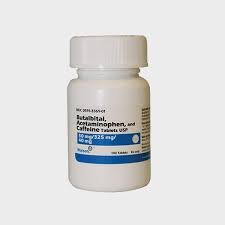Introduction to Nembutal Capsules
Nembutal capsules, known scientifically as pentobarbital sodium, are classified under barbiturates, a group of drugs that act as central nervous system depressants. Historically, these capsules have found a significant role in medical practice, predominantly prescribed for the short-term treatment of insomnia. Barbiturates, including Nembutal, function by enhancing the activity of gamma-aminobutyric acid (GABA), a neurotransmitter that induces sedative effects and promotes relaxation.
Initially synthesized in the early 20th century, Nembutal’s introduction marked a pivotal development in pharmacotherapy for sleep disorders. Its effectiveness in treating insomnia stems from its ability to depress neuronal activity, thus facilitating sleep onset and maintenance. The clinical utility of Nembutal capsules extends beyond insomnia; they are also utilized in preoperative sedation, as anticonvulsants in emergency settings, and sometimes in psychiatry for managing severe agitation or anxiety.
Nembutal operates by binding to GABA receptors in the brain, amplifying the inhibitory effects of GABA and subsequently decreasing neuronal excitability. This pharmacodynamic mechanism underpins its therapeutic benefits, rendering it a valuable agent in acute and critical care scenarios. However, the use of Nembutal is recommended for short durations due to the risk of tolerance, dependence, and potential for abuse.
As we delve deeper into the specific uses, effects, and precautions of Nembutal capsules in subsequent sections, it is pivotal to understand their foundational role in medical practice. While they offer substantial benefits in managing certain medical conditions, their application necessitates careful monitoring due to their potent pharmacological profile.
Mechanisms of Action and Pharmacology
Nembutal capsules, known pharmacologically as pentobarbital sodium, are a potent barbiturate primarily used for their sedative and hypnotic effects. At the core of its mechanism of action is its influence on the central nervous system (CNS). Nembutal enhances the inhibitory effects of gamma-Aminobutyric acid (GABA), the principal inhibitory neurotransmitter in the CNS. It accomplishes this by binding to GABA_A receptors, which leads to an increased duration of chloride ion channel opening. The influx of chloride ions hyperpolarizes the neuronal membrane, making it less likely for neurons to fire. This hyperpolarization effectively decreases neuronal activity, producing a calming, sedative effect.
Pharmacokinetically, Nembutal is typically well-absorbed when taken orally in capsule form. After absorption, it is widely distributed throughout the body and crosses the blood-brain barrier efficiently, which is essential for its CNS effects. The metabolism of Nembutal occurs primarily in the liver through processes such as oxidation and glucuronidation. The metabolites are generally excreted via the kidneys. The onset of action for Nembutal capsules, when taken orally, is usually observed within 15 to 60 minutes, making them effective for acute use.
The duration of effects can range from 4 to 6 hours, depending on the dose and individual patient factors such as age, health status, and metabolic rate. The drug’s biochemistry reveals why it is particularly effective in inducing sleep: by enhancing GABAergic inhibition, Nembutal stabilizes the neuronal membrane potentials, thereby facilitating the onset of sleep while maintaining a prolonged sedative effect, conducive to uninterrupted rest.
Understanding these mechanisms is crucial for medical professionals who prescribe Nembutal, as they must balance its therapeutic benefits with potential risks, including the possibility of dependence, respiratory depression, and other adverse effects. This knowledge helps optimize treatment plans, ensuring they are both effective and safe.
Clinical Applications and Usage Guidelines
Nembutal capsules, a form of pentobarbital, are primarily prescribed in a clinical setting for their sedative and hypnotic properties. They are often employed in the treatment of acute cases of insomnia, particularly when other interventions have proven ineffective. The usage guidelines for Nembutal capsules necessitate careful consideration of the patient’s demographic characteristics, such as age and overall health status. For adults, the typical initial dose ranges between 100 mg to 200 mg, administered orally at bedtime. Adjustments may be made depending on the individual’s response and the severity of the insomnia.
For elderly patients, who may exhibit increased sensitivity to barbiturates, the dosage typically starts lower, often around 50 mg to 100 mg, and is closely monitored to avoid excessive sedation or adverse effects. The timing of administration is crucial; Nembutal should be taken shortly before retiring to bed to ensure that its peak sedative effect coincides with the patient’s sleep schedule. Long-term use is generally discouraged due to the risk of tolerance, dependence, and potential withdrawal symptoms.
Criteria for prescribing Nembutal capsules are stringent, emphasizing its use in situations where the insomnia is severely disrupting an individual’s quality of life and daily functioning. Physicians also consider underlying health conditions that may contraindicate the use of barbiturates, such as respiratory diseases or certain types of depression. Adherence to medical advice is paramount in preventing misuse. Patients are cautioned against increasing their dose without consulting their healthcare provider, as this can lead to over-sedation and potentially life-threatening complications.
Monitoring therapeutic outcomes involves regular follow-up appointments to assess the drug’s efficacy and side effects. Physicians may adjust the dosage based on the patient’s feedback and clinical observations. In some instances, it may be necessary to taper the dose gradually to mitigate withdrawal effects if discontinuation of Nembutal is deemed appropriate. Thus, a balanced approach to prescription and usage can help maximize the benefits of Nembutal capsules while minimizing their risks.
Safety, Side Effects, and Precautions
Nembutal capsules, commonly prescribed for managing various conditions, must be used with great caution due to a complex safety profile. Regular consumption of Nembutal can result in a variety of side effects, ranging from mild to severe. Common side effects include drowsiness, dizziness, and ataxia. These effects can impair one’s ability to perform tasks that require full alertness, such as driving or operating heavy machinery.
More severe side effects of Nembutal capsules encompass respiratory depression, hypotension, and potential allergic reactions which manifest as rash, itching, or swelling (especially of the face/tongue/throat), severe dizziness, or difficulty breathing. Such reactions necessitate immediate medical attention to prevent potentially life-threatening complications.
Precautions are paramount when prescribing or using Nembutal, particularly for individuals with respiratory disorders, such as chronic obstructive pulmonary disease (COPD) or sleep apnea, due to the increased risk of respiratory depression. Furthermore, patients with a history of substance abuse should be closely monitored, as Nembutal is a barbiturate and carries a high risk of dependence and abuse. Additionally, those with liver or kidney diseases should use Nembutal cautiously, given its metabolism and excretion pathways.
In the unfortunate event of an overdose, which may present symptoms such as stupor, coma, or severe respiratory depression, immediate intervention is imperative. Standard emergency measures include supportive therapy and the timely administration of activated charcoal, which can limit further drug absorption. Ensuring that patients have access to emergency services and are informed about potential overdose symptoms is crucial for their safety.
Lastly, interactions with other medications and lifestyle factors significantly influence Nembutal’s effectiveness and safety. Concurrent use of other CNS depressants such as alcohol, benzodiazepines, or opioids can exacerbate sedative effects and increase the risk for life-threatening respiratory depression. Patients should maintain open communication with healthcare providers about all medications they are taking, including over-the-counter drugs and supplements, to prevent harmful drug interactions.
Introduction to Nembutal Capsules
Nembutal, chemically known as pentobarbital sodium, is a barbiturate with a longstanding clinical history as a potent sedative and hypnotic medication. Classified under the broader category of barbiturates, Nembutal acts primarily as a central nervous system depressant. Originally synthesized in the early 20th century, this medication has since been extensively utilized in managing sleep disorders, particularly insomnia, and as a pre-anesthetic sedative before medical procedures.
Barbiturates like Nembutal function by enhancing the activity of gamma-aminobutyric acid (GABA), a neurotransmitter that inhibits the activity of neurons in the brain. This results in a profound calming effect, making Nembutal effective for individuals experiencing severe anxiety or trouble sleeping. Unlike some newer sleep aids, the mechanism of action of Nembutal is well understood, leveraging its ability to induce sleep rapidly and maintain the sedative effect over an extended period.
Knowledge of the historical context and development of Nembutal adds depth to our understanding of its usage. The compound was developed during an era when barbiturates were the cornerstone of sedative-hypnotic therapy before the advent of safer alternatives like benzodiazepines. Despite newer options, the controlled application of Nembutal in modern medicine underscores its continuing relevance and efficacy.
While its primary function remains the induction and maintenance of sleep, Nembutal’s versatility includes applications in reducing intracranial pressure and managing severe cases of seizure disorders. Given its potent effects, Nembutal is classified as a Schedule II controlled substance, denoting a high potential for abuse and dependency. As such, it is critical to adhere to medical guidance when utilizing this medication to mitigate risks and harness its therapeutic benefits effectively.
Mechanism of Action
Nembutal capsules primarily operate by influencing the central nervous system, particularly through the enhancement of gamma-aminobutyric acid (GABA) activity. GABA is a neurotransmitter that plays a crucial role in promoting relaxation and inducing sleep. When Nembutal is ingested, it increases the effect of GABA by binding to its receptors in the brain, thereby amplifying the inhibitory signals. This action ultimately slows down overall brain activity, leading to a sedative effect.
The sedative properties of Nembutal are notably efficient due to its ability to potentiate GABA’s inhibitory neurotransmission. Essentially, Nembutal’s binding to GABA receptors makes the postsynaptic neurons less likely to fire. Consequently, this reduced neural activity helps alleviate anxiety, induce sleep, and provide anticonvulsant effects. This mechanism makes Nembutal particularly useful in various clinical scenarios such as preoperative sedation, treatment of acute convulsions, and short-term management of insomnia.
One of the distinctive features of Nembutal compared to other hypnotic medications is its classification as a barbiturate. Unlike non-barbiturate hypnotics, such as benzodiazepines, which primarily modulate GABA activity, Nembutal provides a broader spectrum of CNS depression. This property renders Nembutal more potent in its sedative effects, but it also underscores the necessity for stringent precautions, as barbiturates come with a higher risk of dependency and overdose.
Furthermore, the depth of sedation and the duration of effect delivered by Nembutal are dose-dependent, meaning that careful dosing is essential to achieve the desired therapeutic outcome while minimizing potential adverse effects. Due to its powerful impact on the central nervous system, healthcare providers must meticulously consider patient-specific factors such as age, liver function, and concurrent medications to tailor the use of Nembutal appropriately.
In summary, the mechanism of action of Nembutal capsules hinges on their ability to enhance GABAergic activity, thereby inducing a potent sedative effect. This characteristic, coupled with its barbiturate classification, necessitates cautious administration to ensure both efficacy and safety.
Usage Guidelines and Dosage
Nembutal capsules, a potent barbiturate, require meticulous adherence to medical guidelines to ensure safety and therapeutic efficacy. The prescribed dosage of Nembutal chiefly depends on the individual’s medical condition, response to treatment, and doctor’s discretion. Typically, healthcare providers recommend the dosage based on the severity of the condition and the patient’s age and weight. Standard administration suggests taking the capsules with a sufficient amount of water to facilitate proper absorption.
For adults and the elderly, the recommended usage patterns may slightly vary. Adults are generally advised to begin with a lower dose, which can be adjusted based on the individual’s tolerance and therapeutic needs. The elderly might require tailored dosages due to potential variations in metabolism and increased susceptibility to side effects. It is crucial for both demographics to scrupulously follow the doctor’s instructions and avoid self-modification of the dose.
The typical administration method involves taking the capsules at evenly spaced intervals as part of a regular schedule, usually at bedtime or as directed by a healthcare provider. Nembutal is usually prescribed for short-term use only, owing to the risks of dependence and potential adverse reactions. If a dose is missed, it is generally advised to take it as soon as remembered unless it is near the time for the next dose. In such cases, skipping the missed dose and continuing with the regular schedule is recommended. Doubling up on doses to make up for a missed one is ill-advised due to increased risk of side effects.
Importantly, strict adherence to medical advice cannot be overstressed. Deviating from prescribed guidelines can result in significant misuse, heightening the potential for dependence and serious side effects. In emergency situations—for instance, signs of overdose like confusion, drowsiness, or shallow breathing—immediate medical attention is necessary. To ensure the safest use of Nembutal capsules, continuous communication with healthcare professionals is essential for monitoring the treatment’s progress and making any necessary adjustments.
Precautions and Potential Side Effects
Nembutal capsules, while effective for their designated uses, come with several critical safety considerations that users must be aware of. One of the foremost concerns is the potential for dependency. As a barbiturate, Nembutal has a notable risk of leading to physical and psychological dependency if used regularly or in higher doses than prescribed. Consequently, abrupt discontinuation can induce withdrawal symptoms such as agitation, muscle cramps, and in severe cases, seizures. Therefore, it is paramount to use Nembutal strictly under the guidance of a healthcare provider to mitigate the risk of dependency and manage any possible withdrawal properly.
Potential side effects of Nembutal can vary in their severity. Mild side effects include dizziness, drowsiness, nausea, and sometimes headaches. These side effects generally subside as the body adjusts to the medication. However, more severe side effects demand immediate medical attention. These include respiratory issues, confusion, fainting, and unusual changes in mood. Severe respiratory depression is particularly concerning and can be life-threatening, highlighting the necessity for vigilant monitoring of individuals prescribed Nembutal.
Interactions with other medications present another significant precaution. Nembutal can interact adversely with a variety of drugs, including other central nervous system depressants such as opioids, alcohol, and benzodiazepines, which can amplify sedative effects and respiratory depression. Additionally, it may interact with anticoagulants, anticonvulsants, and some antibiotics, potentially altering their efficacy or increasing the risk of side effects. Therefore, it is crucial for patients to disclose all medications they are taking to their healthcare provider to avoid dangerous interactions.
Individuals with pre-existing health conditions, such as liver disease, breathing disorders, or a history of substance abuse, require special consideration. These conditions can exacerbate the side effects of Nembutal or make its use unsafe. For instance, impaired liver function can affect how the body metabolizes the drug, leading to heightened or prolonged effects. Breathing disorders may be aggravated by Nembutal’s depressive effects on the respiratory system.
Regular consultation with a healthcare provider is essential to ensure the safe use of Nembutal capsules. Continuous monitoring enables healthcare providers to adjust dosages as needed and address any emerging side effects or complications promptly. This ongoing professional oversight is critical to maximizing the therapeutic benefits of Nembutal while minimizing the inherent risks associated with its use.






Reviews
There are no reviews yet.